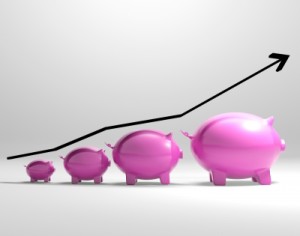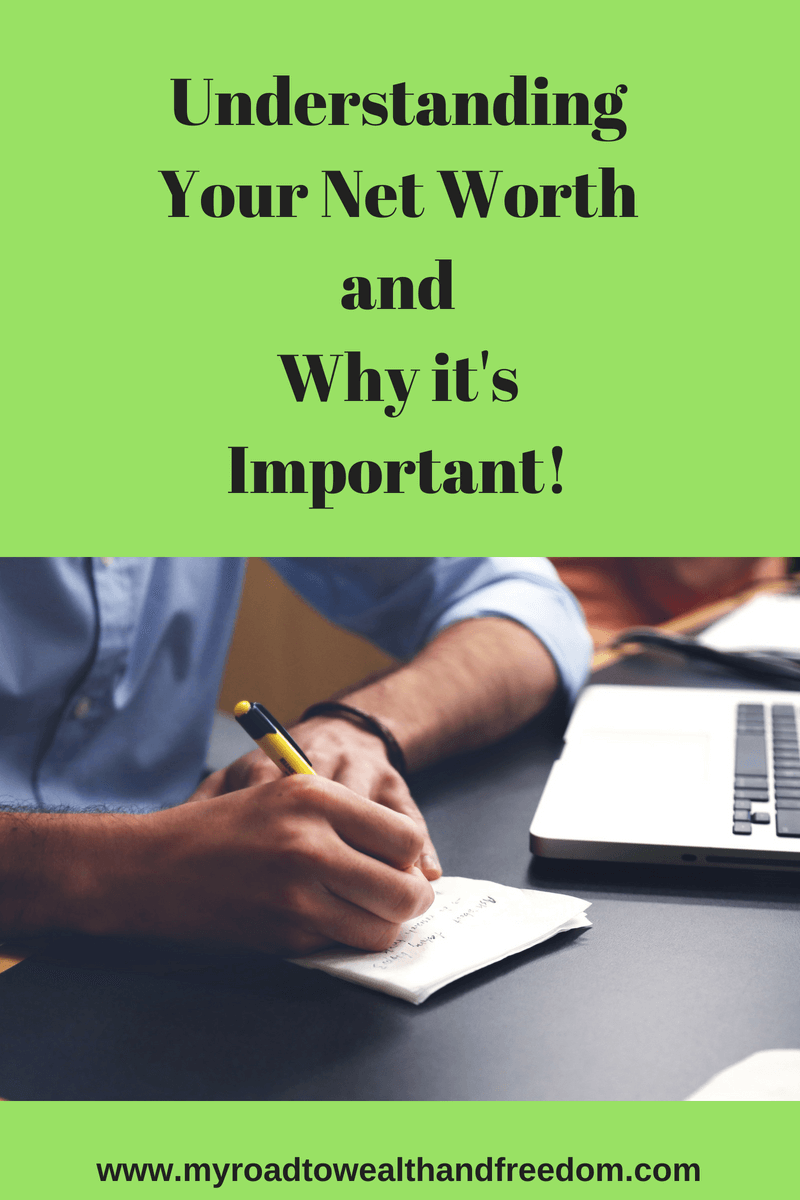What is net worth? If you’re just beginning to learn about personal finance you may come across that term and wonder what it’s all about. This article examines the term “net worth,” how it’s calculated and, most importantly, how to grow it!
What is Net Worth?
Simply put, a person’s net worth is the sum of all their assets minus the sum of all their liabilities.
ASSETS – LIABILITIES = NET WORTH
The balance, whether it is positive or negative is what is referred to as a person’s net worth.
What is an Asset?
Investopedia offer a very broad definition of an asset as “anything that can be converted into cash.” Things like real estate, stocks, bonds, Treasury Bills, mutual funds, collectibles, gold and other precious metals, cars etc. All of those things fall under assets.
Robert Kiyosaki in Rich Dad, Poor Dad offered a very interesting definition of an asset. According to him, an asset is anything that puts money in your pocket. Assets are things that pay you to own them. Dividend stocks pay you a quarterly dividend, a savings account pays out monthly interest, a good rental property pays out monthly rent income that exceeds its operating expenses. Kiyosaki makes an important point that a primary residence is not necessarily an asset because it takes money out of the homeowners pocket to pay for things like the mortgage, insurance, maintenance and repairs.
Generally speaking, assets are categorized by the degree to which they can quickly be converted into cash. Things like stocks, bonds, mutual funds, are easily converted into cash so they are known as liquid assets. Things like real estate and collectibles can be harder to convert into cash so they are categorized as illiquid assets.
In addition to those 2 categories of assets you may even consider adding a 3rd category of depreciating assets. In this category you’d find things like vehicles, recreational vehicles and tech gadgets. These things steadily lose their original value over time but can still be sold for cash. For the purpose of my net worth reports though, I don’t include my family’s vehicles or any other depreciating assets.
What is a Liability
A liability is anything that a person owes. It’s basically the sum of all of our debt. Kiyosaki defines a liability as something that takes money out of your pocket. Things like credit card debt, mortgages, lines of credit, student loans, car loans, etc. There is no such thing as “good” debt in the eyes of the net worth statement. All types of debt subtract from a person’s net worth so you should focus on reducing it over time.
What Does Net Worth Do?
My monthly Net Worth Updates are one of the tools that I use to track my financial progress. This report gives me a sense of my overall financial position and lets me know if it’s headed in the right direction. If it’s not then I need to make some changes. The net worth statement offers a glimpse at your financial health at a particular point in time. If you save and invest your money on a regular basis, you’ll see your net worth grow continuously over time.
How to Grow Your Net Worth
It’s important to mention that a person’s net worth can be either positive or negative. If you have negative net worth you should work hard to get it into the positive. How do you do that? Simple. Build up your assets and reduce your liabilities by paying them off.
What Kinds of Assets Should You Build?
In my opinion, for the average person financial assets are the easiest and cheapest to acquire and are liquid – which means they can easily convert into cash. Financial assets have low barrier of entry too. A person can literally start investing with as little as $25 a month!
Financial assets are paper assets. Things like stocks, bonds, Treasury Bills, mutual funds, Guaranteed Investment Certificates (GICs) etc. The main feature among all of those financial assets is that it’s easy to cash out in case of emergency. For example, if I ever needed a lot of cash fast, I could simply sell some of my stocks and I could have the cash in my bank account in 3 days.
Another option for building assets is to buy real estate. But real estate can become illiquid in a Buyer’s market. There is also a high initial acquisition cost to owning real estate. Things like legal fees, land transfer taxes etc, all contribute to high acquisition costs. On top of that, you also get a monthly mortgage payment for the next 25 years.
All of that aside, despite housing market crashes and all of the costs and upkeep, real estate has historically been a great long term investment and many people have built significant wealth with it. In fact, I recently wrote about how buying my first home at a young age helped build up my net worth.
That’s not to say that a person can’t own a mix of these 2 types of assets. In fact many people hold a combination of the two. The main point is that it makes sense to own a bunch of different types of assets so a person’s total risk is spread around instead of being tied to any one specific asset.
Photo Credit: Photo courtesy of StuartMiles / FreeDigitalPhotos.net
